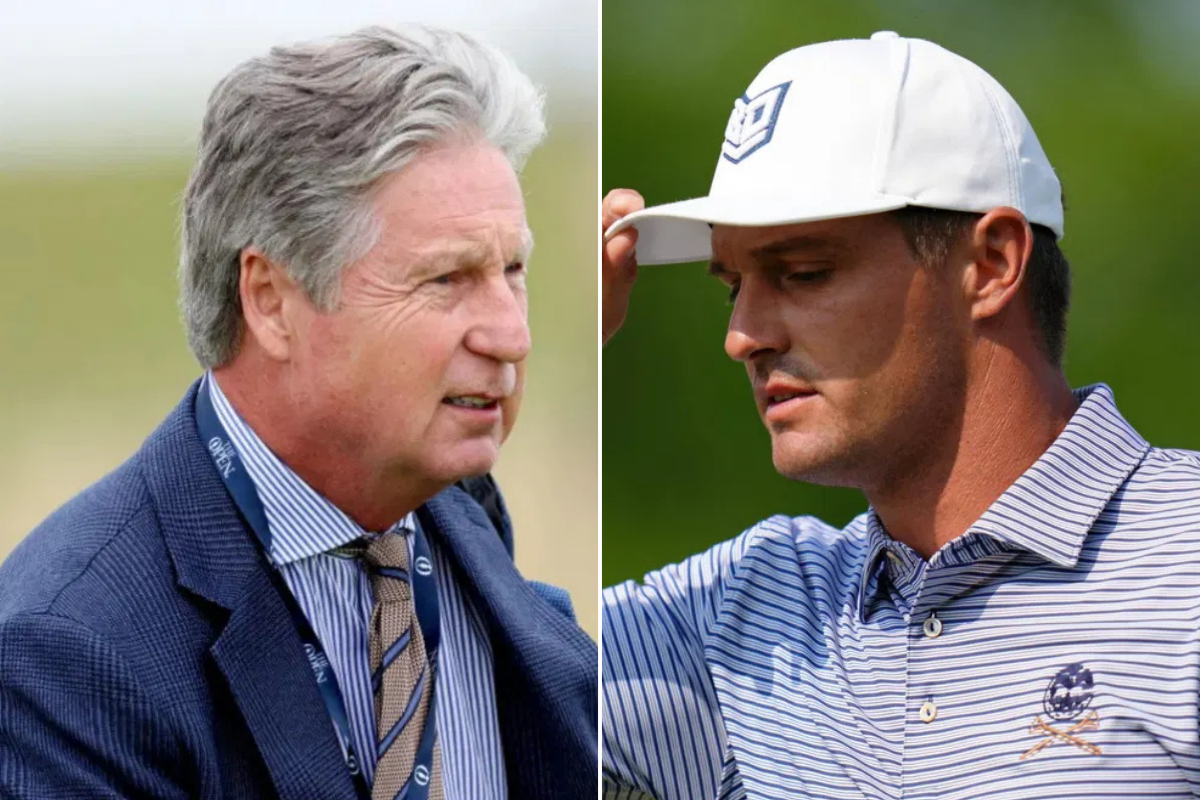
Imago
Credit: IMAGO

Imago
Credit: IMAGO
For years, Brandel Chamblee built his reputation as golf’s most outspoken critic, famously calling Tiger Woods a “little boy” in 2013 and sparking countless controversies with his sharp commentary. Most recently, golf fans watched him label Bryson DeChambeau a “captain’s nightmare,” cementing his image as DeChambeau’s harshest media critic. However, the Golf Channel commentator just revealed a surprising truth that completely flips this narrative.
Watch What’s Trending Now!
Speaking on The Dan Patrick Show on September 24, 2025, Chamblee made a startling admission. “I like Bryson, I enjoy his game, I say a lot of nice things about him, but the way the world works is they pick up on one negative thing you say about him and it becomes a headline,” he explained. Furthermore, Chamblee acknowledged that DeChambeau “probably thinks that I’m highly critical of him when I’ve mostly been complimentary of him.”
The timing of Chamblee’s admission is particularly significant, coming as golf media continues to debate his controversial assessment of the LIV Golf star.
“I like Bryson, I enjoy his game, I say a lot of nice things about him. But the way the world works is they pick up on one negative thing you say about him, and it becomes a headline.”
– @chambleebrandel clarifies his views on Bryson DeChambeau. pic.twitter.com/hbC0pZsI4g
— Dan Patrick Show (@dpshow) September 25, 2025
Nevertheless, Chamblee’s full critique contained more nuance than headlines suggested. “It’s one of the reasons why I think he’s going to be such a difficult person to get paired with. No doubt he’s one hell of a golfer. No doubt he has his moments of generosity with fans; I have heard about them,” Chamblee said during the original broadcast. Even within his criticism, he praised DeChambeau as “one hell of a golfer” and acknowledged his “moments of generosity with fans.”
During his appearance on The Dan Patrick Show, Chamblee expressed genuine regret about his word choice. “Maybe that was a little strong. Maybe what I should have said was he probably is problematic to pair with or maybe he keeps a captain up late at night. Maybe nightmare was a little bit strong,” he admitted. Additionally, he caught “a fair bit of scorn for that” comment and wished he could take the word back.
The controversy stems from DeChambeau’s interview, which focused on his YouTube channel rather than the dynamics of his Ryder Cup team. Chamblee found this timing “struck my ear just a little bit odd” considering the team event’s importance.
Why Bryson DeChambeau’s Ryder Cup pairings go beyond pure talent
Chamblee’s concerns about DeChambeau highlight the complex challenge facing U.S. captain Keegan Bradley at Bethpage Black. Indeed, successful Ryder Cup pairings require more than just combining the best players available.
Equipment compatibility creates the most significant obstacles in foursomes play. Rex Hoggard explained the technical reality: “I think Bryson DeChambeau, we should not expect to see him in the alternate shot (foursomes). He plays a golf ball that nobody else really plays on the Tour. That’s a hurdle the captain probably doesn’t want to get past.” Consequently, this equipment mismatch forces tactical limitations that captains must navigate carefully.
Historical evidence strongly supports these concerns about pairing. Tiger Woods and Phil Mickelson‘s infamous 2004 partnership (0-2-0 record) suffered partly because they received only two days’ notice to prepare together. Mickelson later revealed that golf ball incompatibility forced him to spend practice time learning Woods’ high-spin ball instead of tournament preparation.
More recently, Scottie Scheffler and Brooks Koepka endured the worst defeat in Ryder Cup history, losing 9&7 to European opponents in 2023. These failures often result from personality mismatches rather than skill deficiencies alone.
However, successful partnerships, such as those between Rory McIlroy and Tommy Fleetwood (2-0 in 2023 foursomes), demonstrate how compatibility beyond pure talent creates formidable teams. Similarly, Jordan Spieth and Patrick Reed‘s successful 2014-2016 run demonstrated how a personality match can effectively overcome individual limitations.
Despite external criticism, DeChambeau’s teammates consistently defended him throughout the controversy. Captain Keegan Bradley emphasized that “He’s made every effort possible and been incredible in the team room.” Meanwhile, Scottie Scheffler, who partnered with DeChambeau in 2021, called him “an incredible competitor” and “a fantastic partner as well.”
Chamblee’s honest reflection reveals how media amplification can distort relationships and create false narratives. His admission that he is “mostly complimentary” suggests that negative soundbites generate more engagement than positive assessments. Ultimately, this dynamic affects not just analyst-player relationships but how fans perceive the sport’s key figures.







